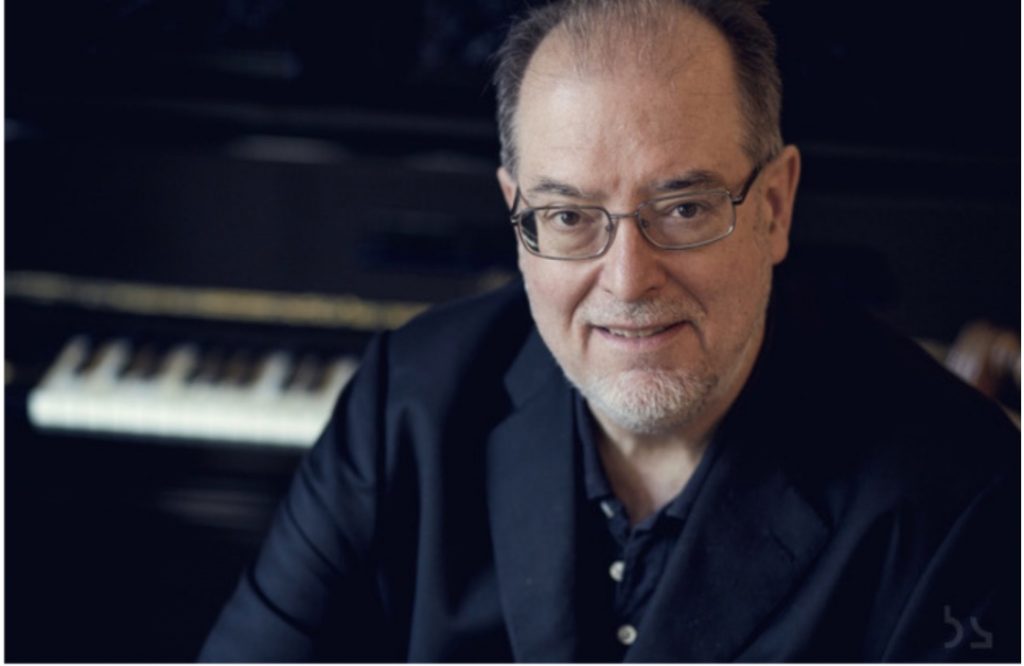by Mike Telin

One Tuesday, May 7 at 7:30 pm at Disciples Christian Church, Ohlsson will revisit the Cleveland Chamber Music Society with a program that features the music of Beethoven, Schubert, and Chopin. Tickets are available online.
The program also includes Thomas Misson’s Convocations, a work that was commissioned by Musica Viva for Ohlsson’s tour of Australia in 2023. “I was able to play it nine times in seven cities which was nice, because when you get a new commission, very often there’s one performance and that’s it. So I played it a lot and decided I liked it and wanted to bring it to other places. Cleveland will be the second performance in North America.”
Although Ohlsson had no input into the piece — “it just arrived” — he did select the composer. “When the idea of the commission came up, Musica Viva asked if I would be willing to do it, and I said yes. So they sent me music by a number of Australians, and I listened and picked Thomas Misson, who is a young Tasmanian.”
Ohlsson said that he was hoping for a piece that wasn’t rhythmic, bouncy, and upbeat. “We’re drowning in music like that. Misson’s music isn’t dark at all, but there’s a real sense of development and flow and consequence in his music and I’m really pleased with that. Of course, I made a joke when I spoke to the Musica Viva people — I said to tell Misson it should be about ten minutes long and it should be a masterpiece.”
Moving our discussion to Beethoven, the pianist said that he is a composer for your entire life, and in Sonata No. 6, he’s being incredibly friendly — for the most part. “He’s being witty and entertaining, which is not always the way he is.”
Ohlsson’s program also includes Schubert’s Wanderer Fantasy. “If I said Beethoven was being tuneful, witty, and entertaining, here Schubert is being very Beethoven-y and shaking his fists at the heavens.”
The pianist said that one of his favorite things about the piece are the psychotic episodes that seem to erupt out of nowhere. “I’d also like to say that it’s truly technically challenging. Sometimes I’ve played it with a Liszt sonata on the second half, and people say, ‘Oh my, the Liszt is so difficult.’ And I always say that it’s not easy, but it’s not a patch on the Wanderer Fantasy.”
In 1970 Ohlsson became the first, and to this day, the only pianist from the United States to win the gold medal at the Chopin Competition. Since then he has become closely aligned with that composer’s music. Tuesday’s program will include the Variations brillantes, Op. 12, Nocturne in B, Op. 62, No. 1, and Scherzo No. 2 in b-flat, Op. 31.
Out of curiosity, I asked Ohlsson if he ever gets tired of playing Chopin? “The answer is no,” he said that all artists have certain pieces in their repertoire that they’ve played hundreds of times. “But with Chopin, I’ve played so much of it and love it so much that it’s like being an actor in a role. I know the moves,” he said, adding that every time you look at great music, you see new things, and make new connections.
“It’s a funny thing about Chopin — and I have felt this ever since I won the competition way back in the Stone Age: a lot of music interviewers said, aren’t you glad that you can go on to other things after all that Chopin? And I said, no, actually not, because my love and admiration for Chopin only grew during that period of preparation and the excitement and the thrill of taking part in the competition. I like to say that he is the world’s greatest pastry chef — nobody can make a fancy pastry the way Chopin can with his music.”
Ohlsson noted that Chopin not only helped to advance piano playing, he also moved harmony forward. “He’s the musical father of so many late romantic composers. So, yeah, I like him a lot — he gives me the profoundest pleasure. When I play Chopin somehow things feel right with the world, even if the music is disturbing at times.”
Published on ClevelandClassical.com May 5, 2024
Click here for a printable copy of this article
Return to the Front Page.


